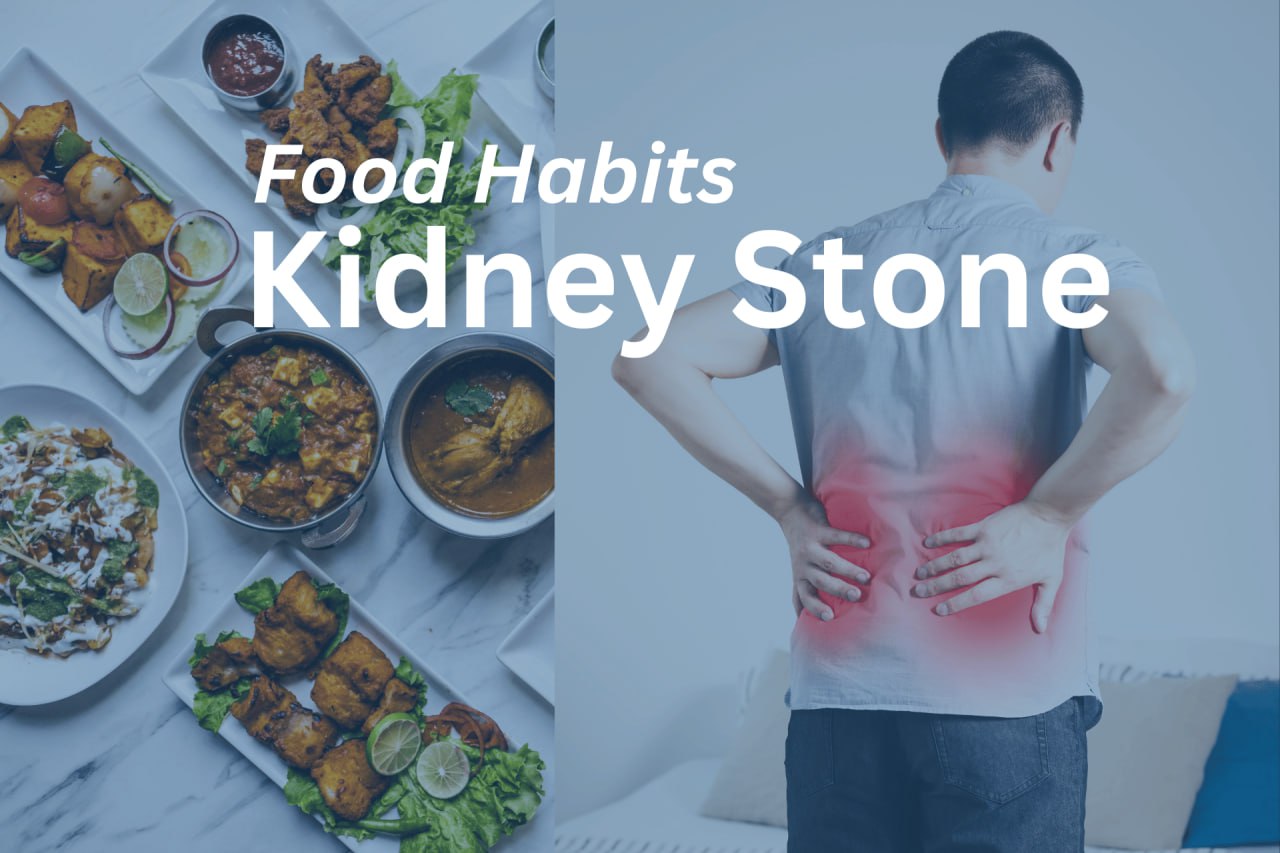
Introduction
Kidney stones, medically known as nephrolithiasis, are a common and painful condition that affects millions of people worldwide. These small, hard mineral deposits in the kidneys can cause excruciating pain and lead to various complications. While genetics and certain medical conditions can contribute to the development of kidney stones, one often overlooked factor is food habits. In this blog post, we’ll explore the link between food habits and kidney stones and how you can make dietary choices to reduce risk.
Understanding Kidney Stones
Before delving into the connection between food habits and kidney stones, let’s first understand what they are and how they develop. Kidney stones are solid masses of minerals and salts in the kidneys. They can vary in size, with some being as small as a grain of sand, while others can grow as large as a golf ball.
These stones can remain in the kidneys or move down the urinary tract, causing severe pain when obstructing urine flow. Different kidney stones, such as calcium oxalate stones (the most common type), uric acid stones, and struvite stones, each forming under different circumstances.
Food Habits Can Influence the Development of Kidney Stones.
- Dehydration: One of the most significant risk factors for kidney stone formation is dehydration. When you don’t consume enough fluids, your urine becomes more concentrated, making it easier for minerals and salts to crystallize and form stones. Dehydration is often linked to dietary choices, as some foods and beverages can promote fluid loss. High intake of caffeine, alcohol, and sugary drinks can contribute to dehydration, increasing the risk of kidney stones. To reduce your risk, drink plenty of water throughout the day and limit your consumption of dehydrating beverages.
- High Oxalate Foods: Oxalate is a compound found in various foods, and it can bind with calcium to form calcium oxalate stones, the most common type of kidney stone. Foods high in oxalate include spinach, rhubarb, beets, nuts, chocolate, and some berries. While these foods are generally considered healthy, consuming them in excess, especially if you are already prone to kidney stones, can increase your risk. However, it’s important to note that a balanced diet that includes these foods in moderation is not likely to cause kidney stones in most individuals.
- Sodium and Salt: A diet high in sodium and salt can increase the risk of kidney stone formation. Excessive salt intake can raise the level of calcium in your urine, making it more likely to crystallize and form stones. Processed foods and restaurant dishes often contain high sodium levels, so reducing your consumption can benefit kidney stone prevention.
- Animal Protein: Diets high in animal proteins, such as red meat and poultry, can increase the risk of kidney stones, especially uric acid stones. Animal protein can lead to higher uric acid levels in the urine, which can promote stone formation when combined with low fluid intake. If you’re prone to kidney stones, consider incorporating more plant-based protein sources, such as legumes and tofu.
Conclusion
While genetics and medical conditions certainly play a role in the development of kidney stones, your food habits also have a significant impact. Making conscious dietary choices, staying hydrated, and reducing your intake of high-risk foods can help decrease your likelihood of experiencing kidney stones. Remember that it’s crucial to consult with a UROLOGIST for personalized guidance and recommendations on managing your risk factors for kidney stones. By adopting a kidney-friendly diet and staying well-hydrated, you can take proactive steps to protect your kidney health and minimize the risk of painful kidney stones.



